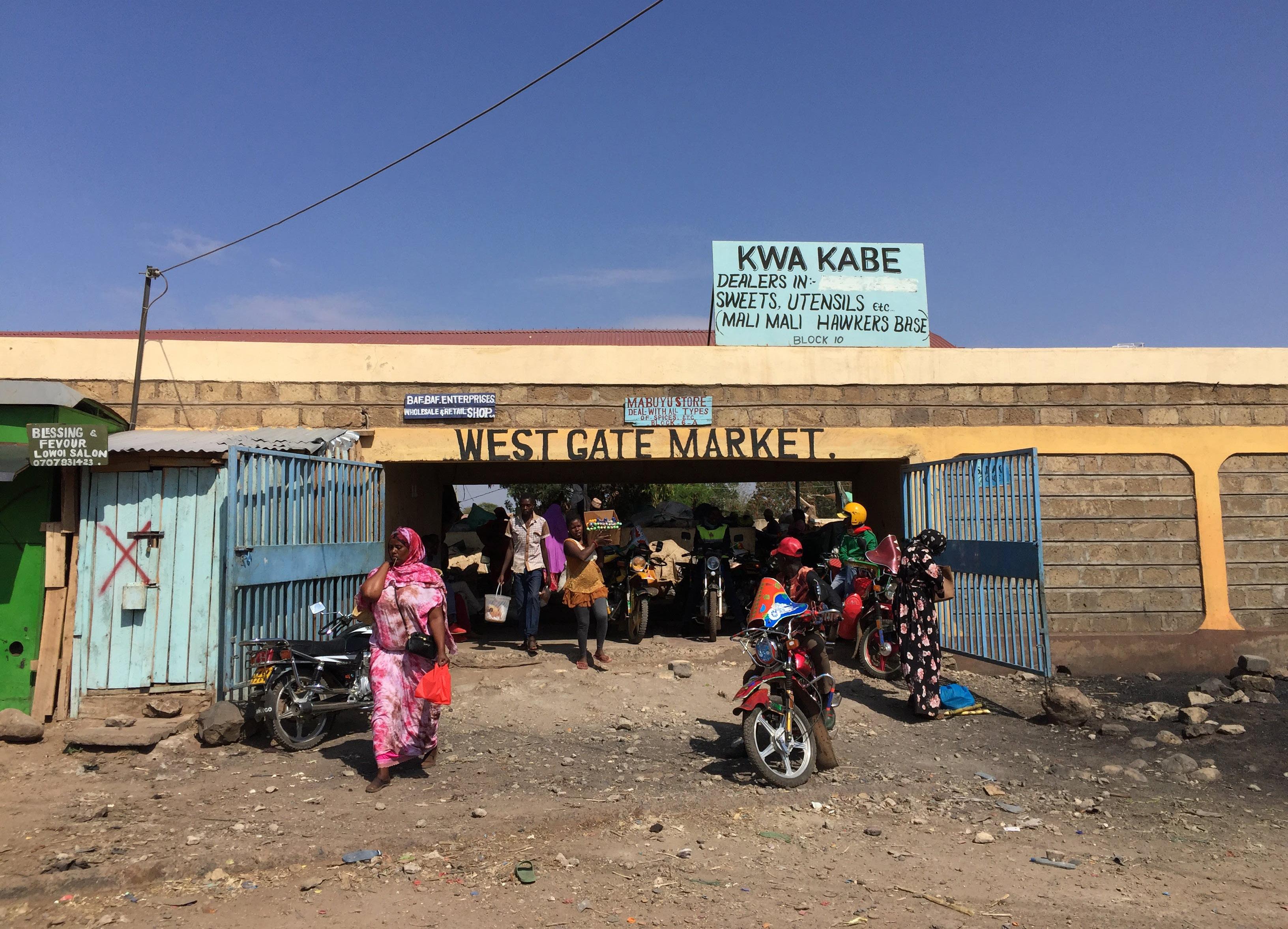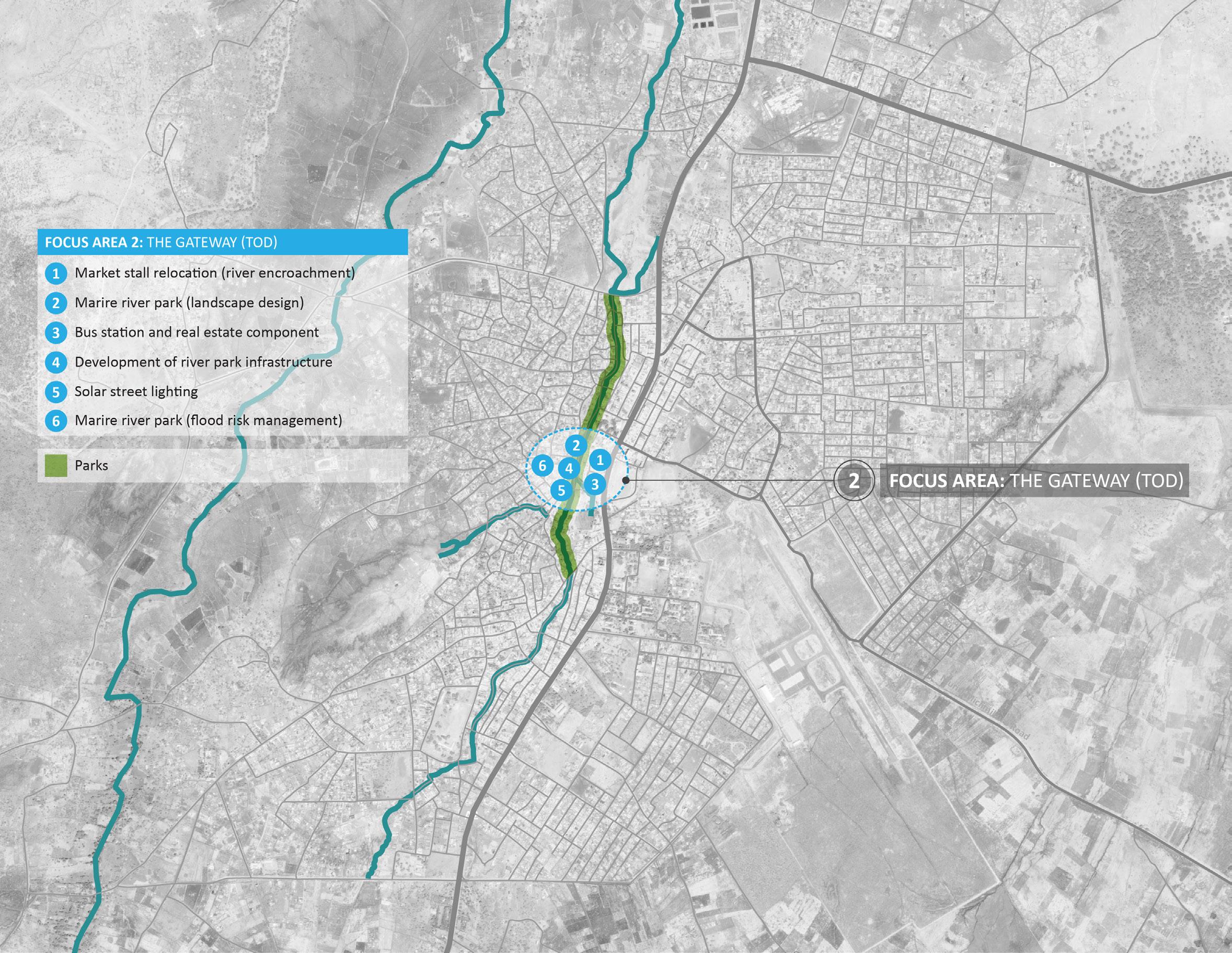
6 minute read
Executive Summary
EXECUTIVE SUMMARY 2
The Urban Economic Plan (UEP) is an advisory document that builds on existing work and priorities identified under the County Investment Development Plan (CIDP), the Capital Investment Plan (CIP), as well as aligning and complementing work done by other donors and organisations. In doing so, it will provide a focused urban and economic development strategy for the Municipal Board and Departments to deliver balanced and sustainable growth for Isiolo.
The purpose of the plan is therefore to: › provide an inclusive urban and economic growth strategy that can guide future development towards increasing prosperity in Isiolo; › prioritise economic activities and climate resilient infrastructure that can maximise benefits and support the development of a sustainable economic future of
Isiolo; › bring together stakeholders on deciding the economic future and growth trajectory of Isiolo and implementing it; and; › identify and prepare value chain projects that can be considered further in terms of their feasibility and bankability before
SUED seed financing is committed. Stakeholders’ interests and insights have been considered throughout the development of the Isiolo UEP. Section 2 of this document sets out the Diagnostic Assessment of Isiolo, where the social, economic, infrastructure and environmental baseline has provided an understanding of the barriers and drivers to sustainable economic growth. The Social Inclusion Study was a key part of the diagnostic, providing recommendations for meeting the aims of the SUED programme - to advance inclusion of PWDs, women and youth - as well as other identified groups who are currently excluded. The prioritised projects will embed recommendations for overcoming communication, physical, attitudinal and organisational barriers to inclusion. The diagnostic identified three Key Sectors that Isiolo should prioritise for infrastructure development and Value Chain opportunities, as: › Retail and Trade
› Agriculture including Livestock › Tourism
Critical for the development of the economy, through these key sectors, will be the improvement of the infrastructure particularly in regard to water management solutions to reduce flooding and improve water provision. The water management solutions proposed are integrated with the wider sector proposals and value chain opportunities. Isiolo Town has experienced rapid population growth along the A2 and urban sprawl which has placed enormous pressure on natural and environmental resources and urban infrastructure. The poor availability of infrastructure and resources needed for sustenance and economic activities,along with a lack of land rights has resulted in a high level of conflict throughout the culturally diverse county. This threatens the economic growth, productivity and quality of life in Isiolo. The cost of electricity is high and unreliable, where the use of more sustainable and efficient energy sources, including solar and bio fuels, can drive industrial opportunities and support population growth. Environmental and climate change threats exist, which will increase pressure on ecosystems, potentially worsen water scarcity and raise environmental degradation risks for soil, rivers, water supply, air quality and forested land. Furthermore, increased drought and flooding frequency may greatly impact agricultural yields and town production processes. Addressing these challenges can enable the Town to establish itself as an effective multifunctioning centre, and lay foundations for sustainable economic growth. Section 3 presents the Urban Economic Development Plan. This is driven by the economic vision that has been developed for Isiolo:
“Develop Isiolo as a Center of excellence and a major economic hub in Kenya with resilient and inclusive growth through the responsible use of it’s natural resources”.
This vision is underlined with objectives to: › Ensure resilient and resource efficient urban and economic growth; › Create an attractive and vibrant business environment; › Develop an enabling and responsive
Municipal organisation; › Promote opportunities for all members of the community. Action Plans have been developed for each of the key sectors, across: › Best Practice for Value Addition
› Market Access and Development › Financial Security and Opportunity › Land Management and Rights › Water Infrastructure
› Establish Modern Market
3 ISIOLO URBAN ECONOMIC PLAN
› Business Support › Effective Town Planning › Access to Finance with focus on women; › Introduce certification of quality. These Sector Action Plans will complement and provide an enabling environment for the shortlisted Value Chain opportunities. Six potential Value Chain projects were identified in the assessment and in consultation with local stakeholders, by performing most strongly against the project’s evaluation criteria and Isiolo’s established priority criteria. All of these opportunities would be suitable for development in Isiolo, however, two particular Value Chain opportunities have been selected to maximise benefits and provide potential ‘quick wins’ for the programme: › Meat processing facility and Waste
System to link with the abattoir; › Milk processing facility, focussing on camel milk.
These Value Chain opportunities are presented in Section 3.5 (all six are in the Appendix) with detail on: their key activities and supply chain, the capacity and competitiveness factors, the investment requirements and financials, potential partners, the infrastructure and land requirements, and overall impacts. In summary, the two Value Chains offer the following benefits for Isiolo: Section 3 also presents the Development Framework, organised around four key focus areas:
› Industrial Cluster
› The Gateway - Transit Orientated
Development (TOD) › Central Business District
› Airport A set of projects have been identified across urban design, power, transport, waste management and water management. The proposed projects have been assessed against climate vulnerability and a number of adaptation measures have been identified to ensure resilience.
The four areas have been identified to create focused and concentrated infrastructure development investment and economic growth opportunities which are founded on the key economic sectors and infrastructure needs that have been identified through the diagnostic process. This will optimise climate resilient infrastructure investment and utilisation, enhance social cohesion and job opportunities, and unlock potential privately funded investments.
Meat Processing Facility and Waste System
Adding value through processing and packing - targeting Nairobi and export markets.
Adding value through the production of processed meat products, e.g. salami, sausages, stocks, jelly, etc.
Direct employment of 50 FTE in the first phase, with increases later as the product range is expanded.
Increasing value added through commercialisation of biproducts / waste products.
Milk processing facility
Improved and stable prices for milk, supporting the incomes for over 500 farmers.
Stable prices and off take would support buying in of fodder and increase in yields.
Supports investment in livestock improvements.
Hygienic processing throughout the production and delivery chain.
Reduction in wastage - spoilt and contaminated product. Direct employment of around 53 FTE in the first phase, with a high potential for employing SIGs, PWDs and other target groups. Furthermore, a range of wider area infrastructure projects and investments have been proposed which respond to the climate risks and environmental management required to support Isiolo’s extensive agricultural base. The report then provides a programming and sequencing of the various projects along with high level cost estimations and suggestions on the sources of funding to finance them.
Section 4 sets out further considerations for implementation across: partners and institutional structures; funding; capacity building; social inclusion; and climate change resilience. Following the completion of the UEP, during the next phase of the SUED programme, the identified value chain and climate resilient infrastructure projects will be developed further by: › Capacity building specialists to enhance municipal and local capacity to implement the projects and ensure revenue generation; › Investment climate and attraction firms and experts to address policy and regulatory constraints; and to develop feasibility studies, business cases and investment promotion strategies for the projects.
EXECUTIVE SUMMARY 4
Figure 1 - Overall Development Framework plan showing the three focus areas and individual sector proposals









